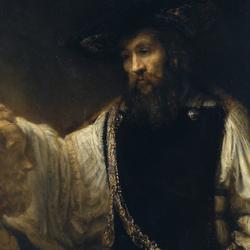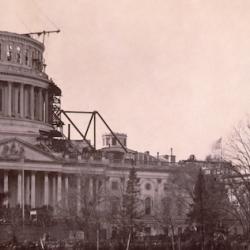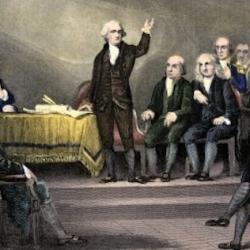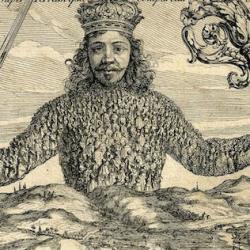In his forthcoming Democracy: A Life, Paul Cartledge summarizes Aristotle’s discussion of democracy in the Politics and the disputed Constitution of Athens. According to Cartledge, Aristotle “deconstructs or decomposes demokratia as such, that genus of ‘constitution’ as it were, into four sub-species, ranging along a spectrum from the most radical and ‘left-wing’ (what he calls the ‘last’ form of demokratia, a category applicable to Athens) to the most moderate, which most closely resembled and indeed overlapped with the most moderate or least ‘right-wing’ form of oligarchy.”
For Aristotle, the key component of democracy that distinguishes is from oligarchy is not the rule of the many but the rule of the lower classes, of the poor: “The real, essential criterion of distinction is not mere numbers but ‘poverty and wealth’: that is to say, democracy is the rule of the poor, oligarchy is the rule of the rich, and so much is that the case that even in a situation where the rich were per impossible the majority of a city’s or state’s citizens, Aristotle would still classify and label it an ‘oligarchy’ and vice versa.”
The wealthy are “the leisured elite of the citizen body, those who did not have to work for a living, who did not live under compulsion from anyone else to work, and indeed typically would be able and willing to compel others—often unfree, slave others—to work for them.” The poor “were all the rest of the citizen body, the non-‘rich’, a far too broad grouping, of course, although he was forced by the facts to concede that some ‘poor’ citizens were much less poor than others and indeed that some might better be labelled ‘middling’, that is, in between the (clearly) rich and the (clearly) poor; and that at the bottom end it might be necessary to separate off the destitute and beggarly, those who possessed virtually nothing, from the merely poor.”
Unlike many modern theorists of democracy, the issue in democracy isn’t the participation of all, or the equality of all. Democracy could and did exist in polities with significant disparities of wealth. The question for Aristotle was about the locus of power: Who had the kratos? As Cartledge puts it, “one of its greatest services is that it does full justice to the kratos part of demokratia, the ‘grip’ or ‘grasp’ element. What was it that the demos had in its grasp or power? Obviously, at one level, the ‘things’ (literally) or affairs of state, the public organs of self-governance. But at another level—and especially when demos was given its full, class-related value of ‘masses’ or ‘the poor’—it was the ‘few’ elite citizens, the oligoi, over whom the demos was exerting its power.”
To Aristotle’s mind, this arrangement of the polity was not good: “Aristotle was second to none in deploring the sectarian, self-promoting versions of democracy in which the empowered poor majority of citizens acted in their own selfishly exclusive interests, as they perceived them, at the expense of the unity, harmony, and general well-being of the polity as a whole.”















